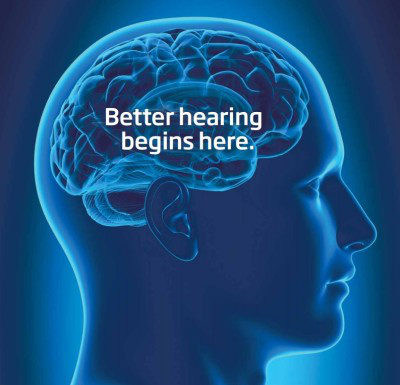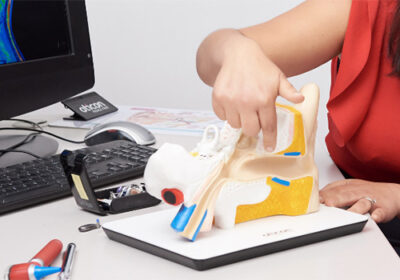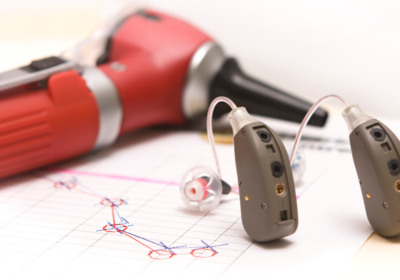1. Read my lips! Use your vision

Hearing loss takes away the clarity of speech making it harder to follow the conversation. It may sound strange but you can enhance what you hear by making the most of what you can see (Helfer, 1997). Did you know that we all naturally lip read? The cues we take from the speaker’s mouth movements are complementary to the words we hear. You can take advantage of this by watching a person’s face when they speak, ensuring the room has good lighting and sitting close to the speaker at meetings. It also helps to ask your communication partner to speak clearly, face you and avoid obscuring their mouth.
We are fortunate to live in a time with amazing technology so take advantage of it. Use video calls so that you can make the most of visual cues even when on the phone.
For further information on these lip reading tactics click here.
2. Keep your brain hearing ‘fit’
 We all know we hear with our ears but did you know we also hear with our brain? Our ears pick up sound waves and turn them into a message that travels to the brain. Our brain is where those sound waves turn into something meaningful. For example, when the doorbell rings, it is our brain that tells us we have a visitor. So we hear with our ears AND our brain. (Peelle, 2016)
We all know we hear with our ears but did you know we also hear with our brain? Our ears pick up sound waves and turn them into a message that travels to the brain. Our brain is where those sound waves turn into something meaningful. For example, when the doorbell rings, it is our brain that tells us we have a visitor. So we hear with our ears AND our brain. (Peelle, 2016)
The more challenging the listening environment, the harder our brain has to work to make sense of sound (Peelle, 2016) (Eckert MA, 2016). So to keep your brain hearing fit, it is important to keep going to places where you find it hard to hear. Meetings, a group chat over coffee with friends, birthday parties and all those tricky social situations. Challenge yourself to stay connected to people in these environments. Your brain hearing and your quality of life will both benefit.
3.The sooner the better…get that hearing aid!
In all aspects of life, technology is helping us to live better. We have voice assistants that can answer questions and read the news to us, lights that can switch on through a smart phone app and video calls to connect with family. The possibilities are endless. This applies to the technology available in modern digital hearing aids.
There have been many studies into the benefits of hearing aids. (Ibrahim I, 2012). The latest research shows that hearing aid users report significant benefits including higher satisfaction with listening in almost all environments and improved quality of life (Picou, 2020)
Hearing aids have a computer chip that is sophisticated and smart. The hearing aid will analyze the incoming sound and give you the clearest speech possible at a comfortable volume for your hearing. Hearing aids have ‘artificial intelligence’ and will scan the environment for noise, speech, and even your movement. They can communicate with smartphone apps to track your hearing fitness progress. They can connect to your TV and smartphone via Bluetooth to act as a wireless headset for the sound. Some can even translate foreign languages into your ear in real-time! This is a great time to embrace this technology and improve your hearing.
4. Get in tune with music

There are various benefits to playing a musical instrument. You can even improve your hearing skills by playing a musical instrument. Research has shown (Alexandra Parbery-Clark, 2011) that both younger and older people who are musicians can hear the conversation better in noise than people who are not musicians.
So it’s never too late to pick up a new skill! Find an instrument and get started. You don’t have to become a professional! Just give it a go. Consider this a part of keeping your brain and brain hearing fit. If this seems too much for you, try to listen to music more and pay attention to the different instruments, rhythms, and melodies. Listening to music is a great way to work those auditory muscles! (Kraus, 2010).
5. Get physical
Age-related hearing loss affects around one in three adults over the age of 65. The tiny, sensitive nerve cells of the inner ear suffer wear and tear and no longer work as well as they used to. However, recent studies (Gispen FE, 2014) show that regular exercise can prevent or slow down age-related hearing loss by keeping a healthy blood flow to the inner ear! A brief 20 minute walk every day may be all that’s needed.



